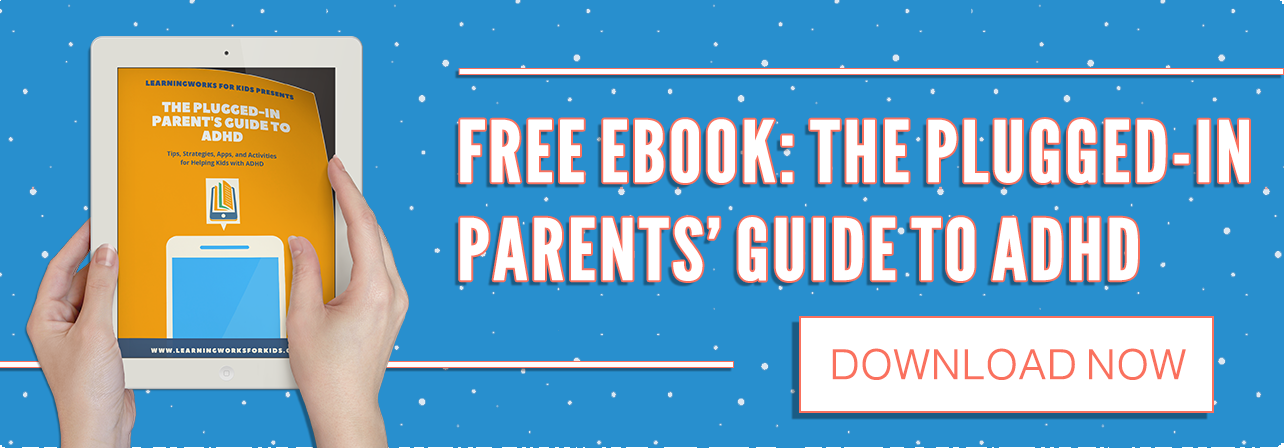Writing is often the most difficult academic skills for kids with ADHD, LD, and weak executive functions. Competent writing requires sustained attention, facility with language, organization, and working memory. Efficient writing (getting one’s thoughts onto paper in a timely fashion) requires a set of other skills, including task initiation, task persistence, time management, and adequate processing speed.
Voice recognition and dictation programs are now accessible for all kids to help in these areas. Once available only as an expensive, personalized, add-on program for computers, dictation programs are now on every smartphone, mobile device, and computer. Learning to use dictation to write requires intensive classroom instruction or programs such as LW4K LIVE, where kids progressively learn about the power of dictation. While personalized adaptive programs such as Dragon Anywhere are still the best tools, the availability of Siri and Google Voice Typing makes them the choice for many students. However, talking is not the same as effective dictation, nor does it automatically produce good sentence structure (although it may eliminate spelling mistakes for poor spellers – at least for those who speak clearly). Dictation is a skill that needs to be taught and practiced. Kids with ADHD, LD, and weak executive functions should learn dictation skills because it can eliminate much of the frustration they experience with writing. This can make the difference between a successful school experience and dropping out.
The numbers tell us why we want kids with ADHD, LD, and weak executive functions to learn to dictate. Sixty percent of these kids are identified with difficulty in written language. Many children with ADHD and LD have associated problems with working memory and processing speed, and problems with spelling and handwriting are also common in these kids. More than 50% of kids with slow processing speed (which dramatically impacts the efficiency of completing writing assignments) also have ADHD, and slow processing speed is common in kids with weak executive functions and LD, as well. Developmental Coordination Disorders, often seen in ADHD and Dysgraphia, can be compensated for in part by voice recognition technologies.
Learning dictation skills can help kids with ADHD, LD, and weak executive functions in completing written assignments. Dictation can assist them in getting started and in overcoming difficulty with task initiation and getting their ideas onto paper. It can also make the process much quicker so that hours of works can become minutes. The data suggest that efficient dictation is far faster than handwriting: an average person can write 13 words in a minute but speak between 125 to 150 words in the same amount of time. Because dictation produces an electronic version of writing, it is easily modified and lends itself to parents, teachers, and peers playing a role in the editing process. Rather than crossing out words, struggling to type fast enough, or losing a piece of paper on which a writing assignment has been started, students who are trained in dictation can generate an outline or draft while they are walking between classes or on their ride home from school. They can find it later, ask for advice about it, and add ideas to it they have had during the day, even sending it to a teacher for comments before completing it.
It is most important for kids who are starting to use dictation skills to be able to write in prose and construct basic paragraph structures. While this may take some work and often requires a few months to master the basics, once a child has these skills there is no going back, they can use writing as a tool for expression of their ideas. Consider this: it is not as if kids with ADHD, LD, and weak executive functions do not like to write – the average teenager sends 3339 texts per month, they are writing all the time. Our job at LW4K LIVE is to show kids how to use dictation skills to write in a different format.
Here are a few other reasons to enroll your children in dictation-skills training:
- They might want to practice these skills with their texting so that they can send more texts. The National Center for Voice and Speech reports that the average American speaks at a rate of 150 words per minute, but a smartphone typist using the “two-thumb” method may average around 30 words per minute.
- In contrast to a decided lack of engagement with academics, many children with ADHD are very interested in technology and desire to master it.
- Voice recognition gives immediate feedback, a core tool for an effective learning environment for children with ADHD.






How do you teach a 15 year old who has tried and failed repeatedly to master dragon dictation? I clicked the link, but no info.
I would recommend checking out the four apps we mention in this blog post: https://learningworksforkids.com/2021/03/four-apps-to-help-your-child-with-their-dictation-skills/ They are slightly more age-appropriate for teenagers and go a long way to building confidence in writing for children who might benefit from the assistance these tools provide.
But you don’t provide these lessons, i have looked! Where can i find lessons which help my child use speech recognition, so far age 15 she just gives up, adhd, asd, dyslexic.
I recommend that you check out this post about four different apps you can use to help your child with dictation and speech recognition. They are all fairly easy to use and may go a long way to helping your daughter build up her confidence with writing and word recognition!
https://learningworksforkids.com/2021/03/four-apps-to-help-your-child-with-their-dictation-skills/